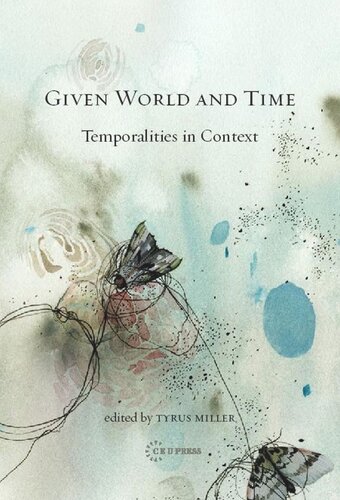

Most ebook files are in PDF format, so you can easily read them using various software such as Foxit Reader or directly on the Google Chrome browser.
Some ebook files are released by publishers in other formats such as .awz, .mobi, .epub, .fb2, etc. You may need to install specific software to read these formats on mobile/PC, such as Calibre.
Please read the tutorial at this link: https://ebookbell.com/faq
We offer FREE conversion to the popular formats you request; however, this may take some time. Therefore, right after payment, please email us, and we will try to provide the service as quickly as possible.
For some exceptional file formats or broken links (if any), please refrain from opening any disputes. Instead, email us first, and we will try to assist within a maximum of 6 hours.
EbookBell Team

4.4
62 reviewsThe interconnections of time with historical thought and knowledge have come powerfully to the fore since the 1970s. An international group of scholars, from a range of fields including literary theory, history of ideas, cultural anthropology, philosophy, intellectual history and theology, philology, and musicology, address the matter of time and temporalities.The volume's essays, divided into four main topical groups question critically the key problem of context, connecting it to the problem of time. Contexts, the essays suggest, are not timeless. Time and its contexts are only partly "given" to us: to the primordial donations of time and world correspond our epistemic, moral, and practical modes of receiving what has been granted. The notion of context may have radically different parameters in different historical, cultural, and disciplinary situations. Topics include the deep antiquity, and the timeless time of eternity, as well as formal philosophies of history and the forms of histories implicit in individual and community experience. The medium specific use of time and history are examined with regard to song, image, film, oral narration, and legal discourse.